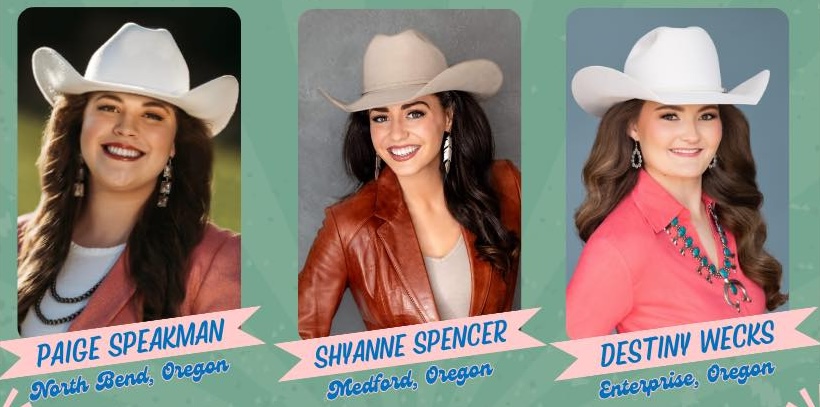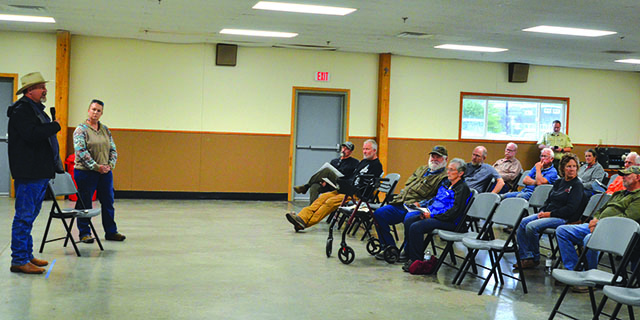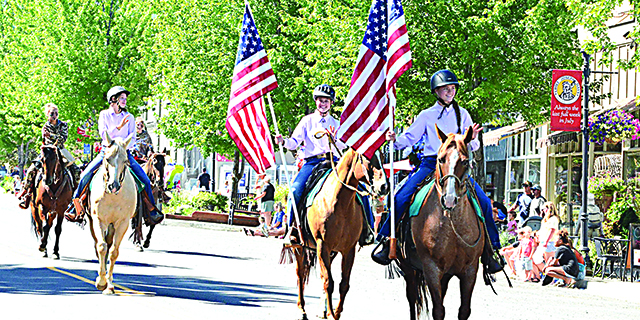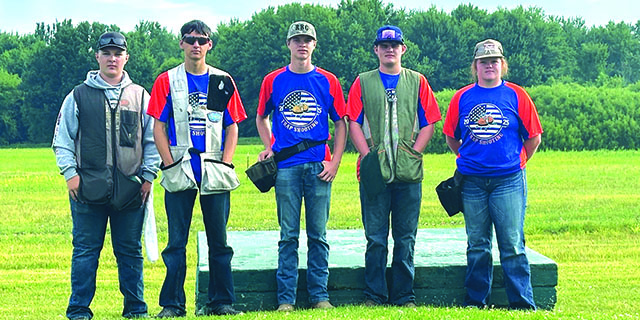Roberts running for reelection for a final term
Published 7:00 am Wednesday, May 1, 2024
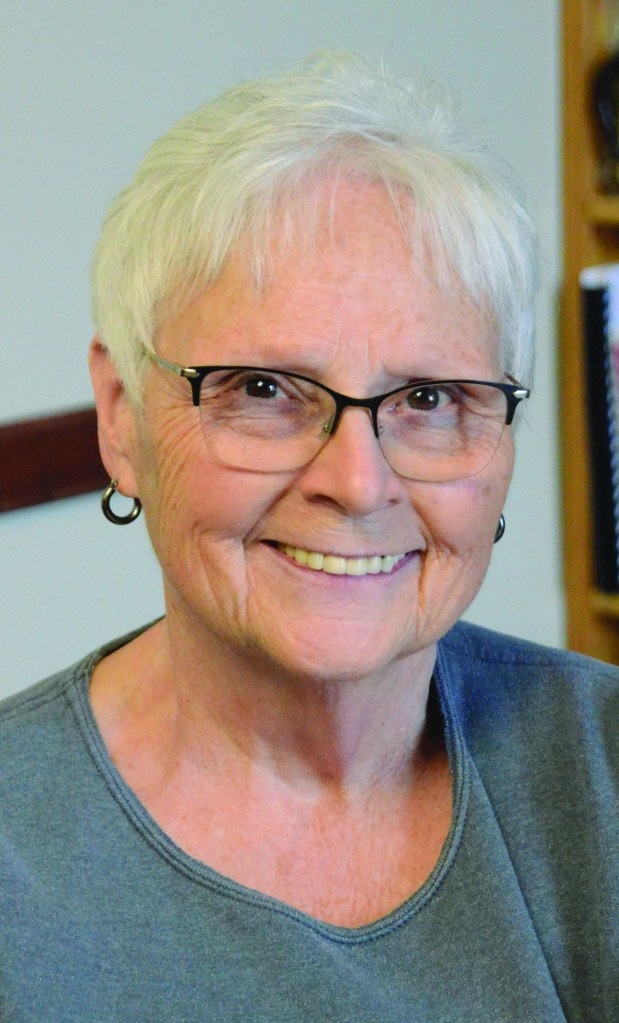
- Roberts
ENTERPRISE — Susan Roberts has been in public service more than 40 years and has spent 15 of those years holding Position No. 2 of the Wallowa County Board of Commissioners — and she’s running for reelection.
“I like what I do. I like working for the county. I like making sure things get done,” she said. “I will state now, if I’m reelected, this will be my last term. At the end of that term I would be 82 years old and have 20 years and that’s enough.”
Trending
She said her experience in government appears to be the reason many people have urged her to run again. With Todd Nash leaving the commission to run for the state Senate, only John Hillock would be left as an experienced commissioner had Roberts decided not to seek reelection. Also, with her plans to make this her final term, she believes she could help a new commissioner learn the ropes.
“It may not prove to be the case, but I would like to think so,” she said of helping a new commissioner learn. “There are a lot of things, I’m on boards, panels, commissions and I would like to be able to get someone up to speed and be able to hand those off.”
The economy in general and housing in particular are the two issues Roberts sees as most vital to the commissioners. One such area is the urban growth boundaries for cities within the county.
“To be able to switch what we’ve always had in our minds as far as what we want — if you have some acreage on the edge of the city limits — being able to change that zone so you could, someone could put three or four homes there — it takes a mindset change that we haven’t quite gotten to,” she said. “We talk a lot about there’s no housing, but there’s a reason there’s no housing because we’re embedded in what we’ve always done instead of looking at what we could do to minimize that while protecting our forest and farmland, but doing something else on the periphery of the towns we have to try to help out.”
Roberts believes the board should continue to encourage more than tourism to come to the county.
“We don’t have a railroad that hauls freight, we don’t have a port that brings money in, we don’t have a lot of things — we’re at the end of the road,” she said.
Trending
Roberts also is concerned about federal policy and the way it has affected Wallowa County.
“When the federal government changed its policies in the 1990s (on timberland), that totally crippled the economics of the county and you can’t make that back on tourism, so you have to diversify, which the county has done quite well, but it’s small businesses,” and governmental entities, she said.
But that also means those smaller entities can be at the mercy of “rules that people somewhere else might make and think it’s a good rule, but it doesn’t work here, or in any rural place, for that matter.”
In 20 years, Roberts said, the county will still be wrestling with issues faced today.
“Part of that is housing,” she said. “The same thing that’s happening here is happening everywhere. People with the ability to pay more for a structure, to buy a house than it’s actually worth because they want to be here, it puts out folks who are trying to earn a living here, so your working people who are making wages somewhere between $40,000-$80,000 cannot compete with someone who’ll come in and pay $350,000 for a doublewide,” she said. “In 20 years, I don’t see it getting better if we don’t make some changes.”
She also wants to ensure the stability of the farm and ranch country and get more timber harvest off of the national forests.
“We have 1.8 million acres of national forests in Wallowa County and that’s not counting the recreation area on the Snake River. That’s just the county and the usable forest,” she said. “There’s many things we need to work on over the next 20 years — or somebody does.”
She’s encouraged to see more young blood getting involved in local government.
“ I think one of the things that’s going to help Wallowa County is we have some younger folks stepping up and becoming interested and want to do it for a period of time,” she said. “It takes a long time to really get everything.”
Roberts wants both proponents and opponents of the Greater Idaho movement to get involved and compile lists of the pros and cons of moving the border so Wallowa County would become part of Idaho. She said it was the response — from both sides — that prompted her to write a letter to the governors and legislatures of Oregon and Idaho to urge discussions on the issue to get underway. She also believes a sunset clause should have been included in the ballot measure so the twice-yearly meetings don’t have to go on indefinitely.
“Wallowa County is obviously half and half,” she said. “I do think it’s important to have a sunset date, like after 10 years.”
Roberts also believes county government has done all it can to be open and transparent.
“I do believe so,” she said. “Open and transparent? By law, we have to be.”
Editor’s Note
Today, the Chieftain continues its series of stories about candidates in the May 21 primary election for the Wallowa County Board of Commissioners.
On this page are stories about the two
candidates running for Position No. 2 on the board, incumbent Susan Roberts and challenger David Hembd.
County commissioners in Wallowa County serve four-year terms. They are paid $50,737 annually. The positions are nonpartisan.
Susan Roberts
Residence: Enterprise.
Current occupation: County commissioner.
Relevant political or other experience: Commissioner since 2009; mayor of Enterprise 10 years, 10 years on City Council. Also served on city Planning Commission and school Budget Committee. Served as president of League of Oregon Cities when she was mayor of Enterprise.
Family: Two daughters, seven grandchildren, cares for 97-year-old mother.
Hobbies: Working for the county. Reads a lot and shoots. Used to hunt. Spends time with her three brothers.


